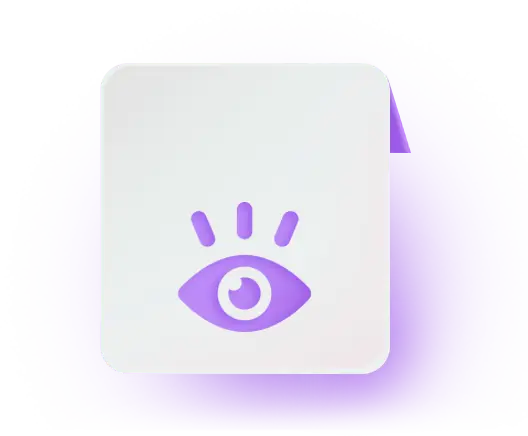Do you ever wonder why all the famous novels are being made into movies these days? This is because most people prefer to watch movies...

8th ICSE Chapter
October 24, 2024
Class 6 is a crucial class in students’ academic careers since it exposes them to a more specialised learning. They are introduced to new courses such as Science and Social Science, which creates the foundation for all the concepts they will learn in future classes. It contains subjects that will serve as a foundation for higher-level chapters they will encounter in higher grades.
The National Council of Educational Research and Training (NCERT) curriculum is used in almost all Delhi board-affiliated schools. Delhi Board Class 6 final exams are usually held in March, also known as the annual exams.
Class 6 is significantly vital for all students and should be taken seriously by all. The National Council of Educational Research and Training (NCERT) provides the exam details and curriculum to be followed by Delhi board-affiliated schools. Delhi Board Class 6 final exams are usually held in March, also known as the annual exams. The Delhi Board follows the NCERT Syllabus in most courses. Students who get through Class 5 Delhi Board exams can enroll in Class 6 and must study for one year to sit for the Class 6 final examination.

The majority of important topics from Science, Social Science, and Mathematics are included in the Delhi Board Class 6 Syllabus. In addition to these major subjects, the syllabus includes the first and second (regional) languages. Students will be required to learn coding as a mandatory topic from now on. Each subject is given in an engaging manner so that students can learn them easily without getting bored.
The following tables describe the subject-wise Delhi Board Class 6 Syllabus:
In Science, there are a total of 16 chapters. Physics, Chemistry, and Biology are the three sections that comprise the Science subject:
| Chapter Number | Chapter Name | Section |
|---|---|---|
| Chapter 1 | Food: Where Does it Come From? | Biology |
| Chapter 2 | Components of Food | |
| Chapter 3 | Fibre to Fabric | Chemistry |
| Chapter 4 | Sorting Materials into Groups | |
| Chapter 5 | Separation of Substances | |
| Chapter 6 | Changes Around Us | |
| Chapter 7 | Getting to Know Plants | Biology |
| Chapter 8 | Body Movements | |
| Chapter 9 | The Living Organisms and their Surroundings | |
| Chapter 10 | Motion and Measurement of Distances | Physics |
| Chapter 11 | Light, Shadows and Reflections | |
| Chapter 12 | Electricity and Circuits | |
| Chapter 13 | Fun With Magnets | |
| Chapter 14 | Water | Chemistry |
| Chapter 15 | Air Around Us | |
| Chapter 16 | Garbage In, Garbage Out | Biology |
There are nearly 26 chapters in Social Science. History, Geography, and Political Science are the three categories of Social Science.
| History | Geography | Political Science |
|---|---|---|
| What, Where, How, and When? | The Earth in the Solar System | Understanding Diversity |
| On the trail of the earliest people | Globe: Latitudes and Longitudes | Diversity and Discrimination |
| From gathering to growing food | Motions of the Earth | What is Government? |
| In the earliest cities | Maps | Key elements of a Democratic Government |
| What books and burials tell us? | Major Domains of the Earth | Panchayati Raj |
| Kingdoms, Kings, and an early republic | Major Landforms of the Earth | Rural Administration |
| New questions and ideas | Our Country- India | Urban Administration |
| Ashoka the emperor | India – Climate, Vegetation, and Wildlife | Rural Livelihood |
| Vital Villages, thriving towns | Urban Livelihood | |
| Traders, Kings, and Pilgrims | ||
| New Empires and Kingdoms | ||
| Buildings, Paintings, and Books |
Mathematics is divided into 14 chapters. They are listed in the table below:
| Chapter Number | Chapter Name |
|---|---|
| Chapter 1 | Knowing Our Numbers |
| Chapter 2 | Whole Numbers |
| Chapter 3 | Playing With Numbers |
| Chapter 4 | Basic Geometrical Ideas |
| Chapter 5 | Understanding Elementary Shapes |
| Chapter 6 | Integers |
| Chapter 7 | Fractions |
| Chapter 8 | Decimals |
| Chapter 9 | Data Handling |
| Chapter 10 | Mensuration |
| Chapter 11 | Algebra |
| Chapter 12 | Ratio and Proportion |
| Chapter 13 | Symmetry |
| Chapter 14 | Practical Geometry |
The Delhi Board English Grammar Syllabus for Class 6 covers Nouns, Pronouns, Sentences, Phrases, Dialogue Completion, Sentence Transformer, Letter Writing, Debate, and Speech. The two English texts required for Class 6 English Literature are Honeysuckle and A Pact With The Sun. The English Curriculum in class 6 is meant to strengthen students’ foundations for future study. The objective of the English course is to develop the student’s skills by familiarising them with basic principles. Students’ communication and writing abilities are emphasised in the English curriculum for Class 6.
The chapters in the main English book for Class 6 – Honeysuckle are described below.
| Unit Number | Chapter Name |
|---|---|
| Unit 1 | Who Did Patrick’s Homework? |
| A House, A Home | |
| Unit 2 | How the Dog Found Himself a New Master! |
| The Kite | |
| Unit 3 | Taro’s Reward |
| The Quarrel | |
| Unit 4 | An Indian – American Woman in Space: Kalpana Chawla |
| Beauty | |
| Unit 5 | A Different Kind of School |
| Where Do All the Teachers Go? | |
| Unit 6 | Who I Am |
| The Wonderful Words | |
| Unit 7 | Fair Play |
| Unit 8 | A Game of Chance |
| Vocation | |
| Unit 9 | Desert Animals |
| What if | |
| Unit 10 | The Banyan Tree |
The chapters in the main English book for Class 6 – A Pact With The Sun is described below:
| Chapter Number | Chapter Name |
|---|---|
| Chapter 1 | A Tale of Two Birds |
| Chapter 2 | The Friendly Mongoose |
| Chapter 3 | The Shepherd’s Treasure |
| Chapter 4 | The Old-Clock Shop |
| Chapter 5 | Tansen |
| Chapter 6 | The Monkey and the Crocodile |
| Chapter 7 | The Wonder Called Sleep |
| Chapter 8 | A Pact with the Sun |
| Chapter 9 | What Happened to the Reptiles |
| Chapter 10 | A Strange Wrestling Match |
The writing section is extremely helpful in enhancing language skills. Students participate in various activities including formal letter writing, message writing, and so on. This section not only assists students in improving their writing skills, but it also aids in the construction of a professional foundation. Let’s look at the detailed syllabus for Delhi Board Class 6 English’s Writing part:
| English Writing Section Syllabus |
|---|
| Formal Letter |
| Informal Letter |
| Diary Entry |
| Notice Writing |
| Message Writing |
| Debate |
| Speech |
| Article |
| Report |
| Story Completion |
The Grammar Syllabus for Class 6 is divided into two sections:
Let’s look at the English Grammar syllabus for these two sections.
| English Grammar Syllabus | |
|---|---|
| Noun | Sentence and Phrases |
| Adverbs | Subject-Verb Agreement |
| Adjectives | Reported Speech |
| Voice | Framing Questions |
| Tenses | Prepositions |
| Verbs | Conjunctions |
| Pronoun | Punctuations |
| English Applied Grammar Syllabus | |
| Gap Filling/ Sentence | Editing |
| Dialogue Completion | Omission |
| Sentence Reordering | Sentence Transformer |
For Delhi Board Class 6 Hindi, there are three books available namely, Vasant, Durva, and Bal Ram Katha. The list of chapters in each of these three books from the CBSE Hindi textbook for 6th grade are discussed below:
| Chapters | Name of the Chapters |
|---|---|
| अध्याय 1 | वह चिड़िया जो |
| अध्याय 2 | बचपन |
| अध्याय 3 | नादान दोस्त |
| अध्याय 4 | चाँद से थोड़ी सी गप्पें |
| अध्याय 5 | अक्षरों का महत्व |
| अध्याय 6 | पार नज़र के |
| अध्याय 7 | साथी हाथ बढ़ाना |
| अध्याय 8 | ऐसे – ऐसे |
| अध्याय 9 | टिकट एल्बम |
| अध्याय 10 | झांसी की रानी |
| अध्याय 11 | जो देखकर भी नहीं देखते |
| अध्याय 12 | संसार पुस्तक है |
| अध्याय 13 | मैं सबसे छोटी होऊं |
| अध्याय 14 | लोकगीत |
| अध्याय 15 | नौकर |
| अध्याय 16: | वन के मार्ग में |
| अध्याय 17 | साँस – साँस में बांस |
| Chapters | Name of the Chapters |
|---|---|
| अध्याय 1 | कलम |
| अध्याय 2 | किताब |
| अध्याय 3 | घर |
| अध्याय 4 | पतंग |
| अध्याय 5 | भालू |
| अध्याय 6 | झरना |
| अध्याय 7 | धनुष |
| अध्याय 8 | रुमाल |
| अध्याय 9 | कक्षा |
| अध्याय 10 | गुब्बारा |
| अध्याय 11 | पर्वत |
| अध्याय 12 | हमारा घर |
| अध्याय 13 | कपडे की दूकान |
| अध्याय 14 | फूल |
| अध्याय 15 | बातचीत |
| अध्याय 16: | शिलॉन्ग से फ़ोन |
| अध्याय 17 | तितली |
| अध्याय 18 | ईश्वरचंद्र विद्यासागर |
| अध्याय 19 | प्रदर्शनी |
| अध्याय 20 | चिट्ठी |
| अध्याय 21 | अंगुलिमाल |
| अध्याय 22 | यात्रा की तैयारी |
| अध्याय 23 | हाथी |
| अध्याय 24 | डॉक्टर |
| अध्याय 25 | जयपुर से पत्र |
| अध्याय 26 | बढे चलो |
| अध्याय 27 | ब्यर्थ की शंका |
| अध्याय 28 | गधा और सियार |
| Chapters | Name of the Chapters |
|---|---|
| अध्याय 1 | अवधपुरी में राम |
| अध्याय 2 | जंगल और जनकपुर |
| अध्याय 3 | दो वरदान |
| अध्याय 4 | राम का वन गमन |
| अध्याय 5 | चित्रकूट में भरत |
| अध्याय 6 | दंडक वन में दस वर्ष |
| अध्याय 7 | सोने का हिरन |
| अध्याय 8 | सीता की खोज |
| अध्याय 9 | राम और सुग्रीव |
| अध्याय 10 | लंका में हनुमान |
| अध्याय 11 | लंका विजय |
| अध्याय 12 | राम का राज्याभिषेक |
Before you begin your preparation, you should have a thorough understanding of the exam patterns, the marking scheme, and the weightage of each chapter. This will help you succeed in your exams. A blueprint is a marking system that allows students to plan their studies depending on the importance of each chapter or topic. For class 6 each schools can have their own marking and weightage system, below are the blueprints prepared based on recent exam trends:
| Science Blueprint | ||
|---|---|---|
| Chapter No. | Chapter Name | Weightage (Marks) |
| Chapter 1 | Food: Where Does it Come From? | |
| Chapter 2 | Components of Food | |
| Chapter 3 | Fibre to Fabric | 3 |
| Chapter 4 | Sorting Materials into Groups | 4 |
| Chapter 5 | Separation of Substances | |
| Chapter 6 | Changes Around Us | |
| Chapter 7 | Getting to Know plants | 14 |
| Chapter 8 | Body Movements | |
| Chapter 9 | The Living Organisms and their Surroundings | 13 |
| Chapter 10 | Motion and Measurement of Distances | 4 |
| Chapter 11 | Light, Shadows and Reflections | 10 |
| Chapter 12 | Electricity and Circuits | 9 |
| Chapter 13 | Fun With Magnets | 13 |
| Chapter 14 | Water | 9 |
| Chapter 15 | Air Around Us | 14 |
| Chapter 16 | Garbage In, Garbage Out | 7 |
| Social Science Blueprint | |||||
|---|---|---|---|---|---|
| History | Geography | Political Science | |||
| Chapter | Weightage (Marks) | Chapter | Weightage (Marks) | Chapter | Weightage (Marks) |
| What, Where, How, and When? | The Earth in the Solar System | Understanding Diversity | |||
| On the trail of the earliest people | Globe: Latitudes and Longitudes | 4 | Diversity and Discrimination | ||
| From gathering to growing food | Motions of the Earth | What is Government? | 4 | ||
| In the earliest cities | Maps | Key elements of a Democratic Government | |||
| What books and burials tell us? | Major Domains of the Earth | 7 | Panchayati Raj | 1 | |
| Kingdoms, Kings, and an early republic | Major Landforms of the Earth | 5 | Rural Administration | 5 | |
| New questions and ideas | 1 | Our Country- India | 7 | Urban Administration | 5 |
| Ashoka the emperor | 6 | India- Climate, Vegetation, and Wildlife | 7 | Rural Livelihood | 5 |
| Vital Villages, thriving towns | 5 | Urban Livelihood | 6 | ||
| Traders, Kings, and Pilgrims | 5 | ||||
| New Empires and Kingdoms | 5 | ||||
| Buildings, Paintings, and Books | 4 | ||||
| Mathematics Blueprint | ||
|---|---|---|
| Chapter No. | Chapter Name | Weightage (Marks) |
| Chapter 1 | Knowing Our Numbers | 12 |
| Chapter 2 | Whole Numbers | 13 |
| Chapter 3 | Playing With Numbers | 15 |
| Chapter 4 | Basic Geometrical Ideas | |
| Chapter 5 | Understanding Elementary Shapes | |
| Chapter 6 | Integers | 9 |
| Chapter 7 | Fractions | 6 |
| Chapter 8 | Decimals | 10 |
| Chapter 9 | Data Handling | 7 |
| Chapter 10 | Mensuration | 14 |
| Chapter 11 | Algebra | 6 |
| Chapter 12 | Ratio and Proportion | 12 |
| Chapter 13 | Symmetry | 3 |
| Chapter 14 | Practical Geometry | 10 |
In Science, students can do the following practicals/experiments and models:
| Chapter | Experiments |
|---|---|
| Food: Where Does it Come From |
|
| Components of Food |
|
| Fibre to Fabric |
|
| Sorting Materials into Groups |
|
| Separation of Substances |
|
| Changes Around Us |
|
| Getting to Know plants |
|
| Body Movements |
|
| Living Organisms and their surroundings |
|
| Motion and Measurement of Distances |
|
| Light, Shadows and Reflections |
|
| Electricity, and Circuits |
|
| Fun With Magnets |
|
| Water |
|
| Air Around Us |
|
| Garbage In, Garbage Out |
|

Here, we have provided a detailed exam taking strategy for students to score well in their exams. It is advised to all the students to go through the pointers given below to know more about the same.
Some of the recommended chapters of Mathematics are:
Some of the recommended chapters of Science are:

The modern education system has been designed to allow a child to move beyond traditional rote learning in order to develop their own intellect and inculcate conceptual thinking and decision-making abilities in tomorrow’s leaders. After all, the school is the main source of information for students. As a result, school serves as the first most important counselling platform for students to learn about the workings of life.
Furthermore, if you are currently in high school, you are at a crucial stage in your life when you are old enough to begin thinking about your future and creating an action plan. Students need career assistance in order to explore and plan for future career pursuits that are suited to their particular interests, talents, and beliefs. Participation in career guidance helps career preparation and management by strengthening the relationship between academic and professional experiences.
Parent counselling is a caring and compassionate service that aims to provide knowledge, guidance, resources, and emotional support. Parent counselling provides the skills to recognise concerns that your child may be experiencing and the communication skills to assist your child without humiliating them for seeking support. The 6th grade is the start of a future career. It’s the perfect time to inspire your child to follow their dreams and develop the skills they require. It’s only natural for 6th graders to seek career guidance. One of the most crucial milestones in an individual’s life is career choice, which requires self-analysis, critical thinking, and decision-making.

Q1. What is the syllabus of Delhi Board Class 6?
A. The Delhi Board Class 6 syllabus comprises topics from English, Hindi, Science, Social Science, and Maths.
Q2. How many subjects are there in Delhi Board 6th Class?
A. There are 5 main subjects in Class 6:
(i) English
(ii) Hindi
(iii) Science
(iv) Social Science
(v) Mathematics
Q3. Why is the Class 6 Syllabus so important?
A. The Class 6 syllabus is important since it serves as a foundation for the chapters that will be encountered in future classes. Every subject contains important chapters.
Q4. Which book is good for class 6 Science?
A. First read NCERT books then we can read books of S.chand and Arihant.
Q5. Which skill education is newly introduced in Delhi Board Class 6?
A. Students have to learn Coding compulsorily.
Q1. What is the syllabus of Delhi Board Class 6?
A. The Delhi Board Class 6 syllabus comprises topics from English, Hindi, Science, Social Science, and Maths.
Q2. How many subjects are there in Delhi Board 6th Class?
A. There are 5 main subjects in Class 6:
(i) English
(ii) Hindi
(iii) Science
(iv) Social Science
(v) Mathematics
Q3. Why is the Class 6 Syllabus so important?
A. The Class 6 syllabus is important since it serves as a foundation for the chapters that will be encountered in future classes. Every subject contains important chapters.
Q4. Which book is good for class 6 Science?
A. First read NCERT books then we can read books of S.chand and Arihant.
Q5. Which skill education is newly introduced in Delhi Board Class 6?
A. Students have to learn Coding compulsorily.

The following is a list of a few well-known Delhi Board schools, along with their locations is given below:
To know more about schools in Delhi, click here.

The 6th grade is the start of a future career. It’s the perfect time to inspire your child to follow their dreams and develop the skills they require. It’s only natural for 6th graders to seek career guidance. One of the most crucial milestones in an individual’s life is career choice, which requires self-analysis, critical thinking, and decision-making. The opinions of parents, friends, family, teachers, and the media all impact the career choice of a student. Parent counselling is a caring and compassionate service that aims to provide you with knowledge, guidance, resources, and emotional support. Parent counselling provides the skills to recognise concerns that your child may be experiencing and the communication skills to assist your child without humiliating them for seeking support.

Competitive exams are now at the core of our educational system. Students and their parents search for important information concerning competitive tests. Most students and parents believe that competitive exams are only held for students in grades 12 and up, although this is not the case. Even for students in class 6, there are a variety of competitive tests and scholarship programmes available. These competitive exams are held to assess a student's mental ability and intelligence quotient, with those who pass receiving a scholarship. For benefit, every student and their parents must get familiar with such competitive exams, as awareness is the first step toward preparedness. Class 6 Olympiad exams serve as a foundation for competitive tests. Parents must provide their children with a solid foundation in the form of these exams. In comparison to prior classes, students in class 6 are expected to solve more questions.
The following are some of the competitive tests that grade 6 students may take:

Learning from the real world allows students to engage in a variety of activities while learning. They can apply what they’ve learned in class to real-life situations both inside and beyond the classroom. When Class 6 students experience things and subject matter from real-life experience, they will be able to express their concerns and rights, gain self-esteem and confidence, and acquire the ability to accept responsibility for themselves.
Coding
Coding, often known as computer programming, is a creative process with limitless possibilities. Different programming languages can be learned to help people succeed in their lives. Some of the programming languages are Java, C, C++, Python, C#, etc.
DIY
DIY activities are basic activities that students can do on their own to learn how to construct models or expand their knowledge of a subject. The Embibe app provides DIY for every grade, subject, and chapter to make learning interesting and purposeful.
IoT
Internet of Things (IoT) connects digital devices, people, machines, appliances, and other objects via wireless networks. It is the link that allows machines and people to communicate with one another. It is thought to be the internet’s future. Smart surveillance, automated transportation, water distribution, improved energy management systems, urban security, and environmental monitoring are examples of internet of things applications primarily used in smart cities. As part of its new endeavour, Delhi Board intends to teach children the fundamentals of IoT.
From Class 6 onwards, students will be offered skill courses or vocational subjects. When students reach class 11 or 12, they will have the required knowledge to make a career decision. The vocational skill course will be a short-duration module, and teachers will only have to devote 12 hours of teaching time to it. Skill courses will be introduced from grades VI to XI in the 2020-21 school year, according to a CBSE circular dated July 7, 2020. The different skill courses are: